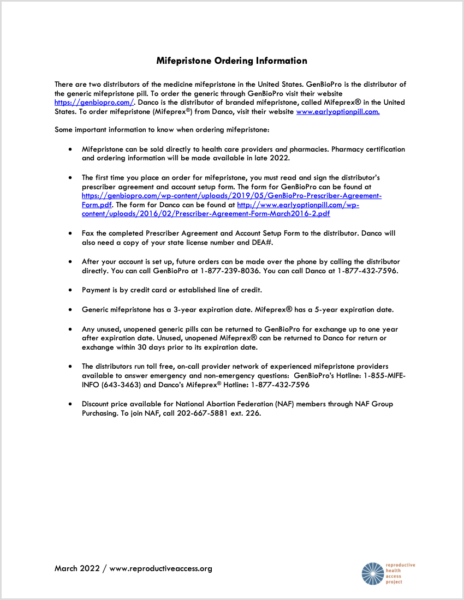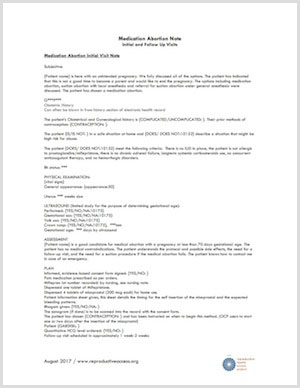Aug 14

Help Us Protect Access to Sexual and Reproductive Health Care Today!
RHAP provides technical assistance to primary care clinicians and health centers – especially Federally Qualified Health Centers (FQHCs) – looking to integrate medication abortion into their practice. We offer:
These are key steps and considerations when changing practice and introducing new abortion services in primary care settings. Check out our Toolkit and the other resources noted for further information and support.
1. Organizing a Planning Committee
2. Connecting with Key Stakeholders
3. Gaining Staff Support: Host values clarification, lunch and learns, or medication abortion CE workshops
4. Developing Clinical Policies and Protocols
5. Organizing Clinic Logistics: ordering, scheduling and clinic flow, on-call clinicians, pharmacy
6. Financial Considerations: Separation of Federal Funds, Billing, Accounting, and Malpractice
7. Legal Considerations
8. Community and Peer Support: Join the Network
Check out the resources below to get started. Contact us at program@reproductiveaccess.org if you have any questions about providing medication abortion care in your health center. We are here to help!
 Integrating Medication Abortion Care Toolkit: a guide for laying the groundwork to integrate medication abortion into a primary care setting
Integrating Medication Abortion Care Toolkit: a guide for laying the groundwork to integrate medication abortion into a primary care setting
 FAQs: FAQ guide to address staff frequently asked questions and concerns about providing abortion care in an FQHC
FAQs: FAQ guide to address staff frequently asked questions and concerns about providing abortion care in an FQHC
 Financial Guidance: How to build a cost allocation plan that complies with federal restrictions on abortion provision
Financial Guidance: How to build a cost allocation plan that complies with federal restrictions on abortion provision
 Resources for FQHCs on providing reproductive health care: federal law requirements and sample policies and procedures drafted by law firm Feldesman Tucker Leifer and Fidell
Resources for FQHCs on providing reproductive health care: federal law requirements and sample policies and procedures drafted by law firm Feldesman Tucker Leifer and Fidell
 Guidelines for general ledger record-keeping for FQHCs: recording-keeping guidelines to support FQHCs providing abortion services
Guidelines for general ledger record-keeping for FQHCs: recording-keeping guidelines to support FQHCs providing abortion services
 How to order mifepristone: a step-by-step guide to order mifepristone in the US
How to order mifepristone: a step-by-step guide to order mifepristone in the US
 Clinical protocol for providing medication abortion: clinical protocol for providing medication abortion using mifepristone and misoprostol
Clinical protocol for providing medication abortion: clinical protocol for providing medication abortion using mifepristone and misoprostol
 Values Clarification Workshop: curriculum on assessing attitudes and beliefs regarding issues surrounding abortion care
Values Clarification Workshop: curriculum on assessing attitudes and beliefs regarding issues surrounding abortion care
 Coding Document: guidance on billing codes for medication abortion care
Coding Document: guidance on billing codes for medication abortion care
 EHR Template: EHR template for documenting medication abortion care
EHR Template: EHR template for documenting medication abortion care
 Consent Form: consent form to use when providing medication abortion
Consent Form: consent form to use when providing medication abortion
 Staff Attitude Survey: survey tool to assess staff attitudes toward abortion care
Staff Attitude Survey: survey tool to assess staff attitudes toward abortion care
 Patient Attitude Survey: survey tool to assess patients’ attitudes toward abortion care
Patient Attitude Survey: survey tool to assess patients’ attitudes toward abortion care
 Abortion Administrative Guide: guidance on setting up administrative systems to provide abortion care in sites that receive Title X, Section 330, and other federal funding
Abortion Administrative Guide: guidance on setting up administrative systems to provide abortion care in sites that receive Title X, Section 330, and other federal funding
Your gift allows us to train and support health care providers across the United States so they can offer patients compassionate and comprehensive care.
Aug 14
